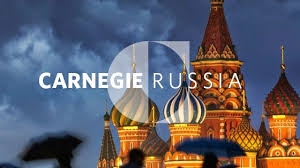«And where are your socks?! Are you going to visit Russian Government like this?!»
« A student life experience or a story about Anton Pravednikov`s internship at Carnegie»
Internships Committee at the Faculty of Political Science, Lomonosov MSU has managed to set a cooperation with Moscow Carnegie Center. Due to this fact Anton Pravednikov, an MA political student, was lucky to work at this World`s known think tank, about which he is eager to tell us in this interview.
– Hi, Anton! Please, tell us where do you study now and how does the internship system work at your university.
– Hi! I am a 2-year MA political science student at Lomonosov Moscow State University. Here I have gained my BA degree and here I stay at the moment.
As about the internship system, both BA and MA students are obliged to take an internship. It can be a 1- month experience, which in Russian is called “производственная практика”. It should be a working experience, related to the field of your study at MSU, so our students typically choose mass media, governmental bodies, electoral field work and etc. In order to get enrolled in internships, a student goes to the all-faculty meeting, after which the faculty may choose several places for him/ her. Although there is also a chance to find an internship by yourself and I truly recommend this second path. Btw, our student council provides very good assistance on the issue, so the one should feel free to write Sasha Shabaltin (ed. – one of the Student Council members) and ask him about the possible internship options.
– So, this year you worked at the Moscow Carnegie Center – was it your first internship or you have already had such an experience before?
– Being a 2-year BA student I used to work (as an intern) at the Federal Migration Service of the Russian Federation. This organization was in the list of governmental bodies, with which our university set an agreement about cooperation, and for an unknown to me reason (or probably I have forgotten the reason, the event took place 4 years ago), I have decided to go there. So, I was not serious about this internship and as a result, I did not get much useful knowledge there. Although I remember two funny stories: one day, working with different governmental papers, I have seen a document with the real signature of Vladimir Putin. I was staring at it for a really long time, so you see, how I tried to escape from being bored (laughing). The second story is about my visit to the Russian Government, where I had to make some preparations for a round table there. The event took place on a very hot summer day and I had a “business casual” look, wearing mocassins without socks. So, when the moment to go to the White House came, my boss looked at me and asked me: “Where are your socks?! Are you going to the White House like this?!”. A woman, staying nearby, started defending me, explaining that “wearing moccasins and socks is a “mauvais ton”. But that did not help, my boss got even angrier and asked me to buy socks on my way to the White House. Although I believe this experience was also useful for me, I had got an understanding of how the Russian bureaucracy works and discovered the importance of socks in the government (laughing). However, probably I could be just fine without having that knowledge also.
– Anton, would you recommend 1-3 year BA students taking internships this early, or would it be better to focus on science and postpone the practical experience?
– I would absolutely recommend the first option. To be honest, I regret losing my time at first years of bachelor studies. I would advise students to start their careers at the first year of their studies, taking internships or even working on elections – I believe it is better to organize, lets say, a meeting with a candidate rather then read about it in a handbook. But it doesnt mean that the one has to skip classes – using the best time-management strategies the one can certainly organize time well.
– As far as I know, your internship at Carnegie appeared due to your great interest. What made Carnegie so special for you?
– Yes, this time it was a much more of a serious decision for me. The reason to choose Carnegie is simple – it is one of the best think tanks in Russia and Eastern Europe, among those organisations which conduct political science research. I get used to reading their publications and reports and, certainly, I was eager to work with them. So, I was following the principle, which says “set big goals” and “work with the best of the best”.
– Could you please tell us a bit more about the professional tasks, which you were given at Carnegie Center?
– At Carnegie, I work with the head of the “Russian domestic politics and political institutions” program, Andrey Kolesnikov, and Carnegie.ru chief editor, Aleksander Baunov. I help them with different projects and tasks: translating Russian texts into English, searching information, conducting research. For example, recently I was working on a big research project about the culture and politics interrelations in Russia. I also take part in the process of organizing roundtables and meetings: there are many interesting guests during such events and I am always interested in listening to them.
– In your opinion, is there a big demand for English-speaking specialists at the moment?
– Speaking English is essential. My research interests are about the Russian domestic politics, but a large amount of truly good investigations are published in English. Many tasks require from a worker to be able to make a profound comparison of the existing Russian works and the foreign ones. That is why I dedicate myself to learning English by listening to the native speakers’ podcasts every single day.
– Why do you think the internship at Carnegie was useful for you?
– I am a freelancer and I always felt very comfortable about working at home. But when I first “met” an office system, I understood how precious this experience can be. Going out of your “comfort zone” gives you a chance to meet new people, helps you build your own personality. As about the internship itself, I would say that it gave me an opportunity to meet great specialists and talk to them about different things (including my life path). It gave me an understanding of the political science professional market and the way I could introduce myself to it.
– You told us a lot about the communication, which you had at the office. Can you see any benefits, gained from this experience so far?
-I do see some of “indirect benefits”. This experience helped me in understanding my future path. When I have got my bachelor degree, I did not know, what shall I do next, how to realise my potential. But the Carnegie staff and the very organization showed me how global our profession is. Remember that you should never set insignificant goals. Once you decide to participate in the international “professional race” rather than a Russian one, you will see how powerful this sense of competition and this will drive you to go further.
– What are the personal and professional skills, which are important for a student to get an internship and become credible?
– Well, the one needs to remember that an internship is very different from the usual work. You gain from the organization much more than it can gain from you: an experience, meetings. Although an employer never guarantees you that you will be hired after all.
So, speaking about the professional skills I could name: being a specialist, having a good understanding of what is going on in the World (not only understand a theory but also being aware of the day-to-day context). Personal characteristics are less important, but I would name responsibility and ability to face deadlines.
– Tell us about the perspectives, which you set after your internship was successfully completed?
– For now, I have gained a huge benefit – working experience at the big company. I remeber how my friends on Instagram replied to my stories, saying “wow! Are you really working there?”. So, my next step is to take an internship at another department of the center. But, in general, I will try to stay at this think tank for as long as I could.
– Have you already realised how your life changed after this internship?
– The main achievement is that I have managed to try to implement the theory on real life, develop many of my university skills: analytic skills, working with information (sometimes in English), picking the most important points, communicating in a corporate culture, working and communicating with colleagues, understanding corporate etiquette.
– What are the university skills, which occurred to be useful at your job?
– I`ll try to be short: fundamental structural knowledge, working with long texts and the ability to make conclusions.
– What is your brightest memory from the internship?
– I believe a discussion with the fromer US Minister of Defence, who came to Russia in order to present his work on nuclear security. It was unusual for me to listen to such a person, who used to work at such a position. Another bright impression of mine is a meeting with international interns, who also worked at Carnegie, that was an opportunity to talk to people from “another world”.
– What are the disadvantages of the internship at Carnegie?
– I know no such things. Although yes, I think the only disadvantage is that I cannot come to the center every day, due to the fact that there are many other interns (laughing). You see, I am enrolled in a non-payed internship for the last two months. I thought that would be a waste of time, but now I am doing my best to continue an internship at the Center. Besides, I have got precious materials for my dissertation.
– Imagine you and your employer are taking an elevator. Suddenly, the elevator gets stuck. What are the questions, which you would ask your employer being in such a situation? 🙂
– This reminds me of an event, which took place during my internship. Recently Carnegie had a meeting for the IAAC alumni (ed. – IAAC is the Institute of Asian and African Countries, one of the Lomonosov MSU faculties). Aleksander Gabuev (head of the “Russia in the Asia Pacific region” program) told about the perspectives sinologists. This information was also useful for a political scientist. According to Gabuev, in order to become competitive, the one needs to become a specialist. There are very few real specialists in the field. He referred to the example of a plane, where he was lucky to sit with a high-level official. A sinologist did not get confused and started explaining the meaning of a Chinese hieroglyph, showing his deep knowledge of a country. Later this fact helped Aleksander Gabuev to get a job, so we should not underestimate the importance of occasional communications with other people.
Keeping in mind this example, I would not get confused either: I would suggest an employer to talking about my future career, demonstrating my knowledge in the field.
– Thank you for this interview! I am sure this material will be highly useful for students!
The interview was conducted and edited by: Arina Popova and Ekaterina Usikova
The material was first published at the Department of Internships and Working Placement of the Student Council, Faculty of Political Science, Lomonosov MSU
Translated by Karina Kurenkova


